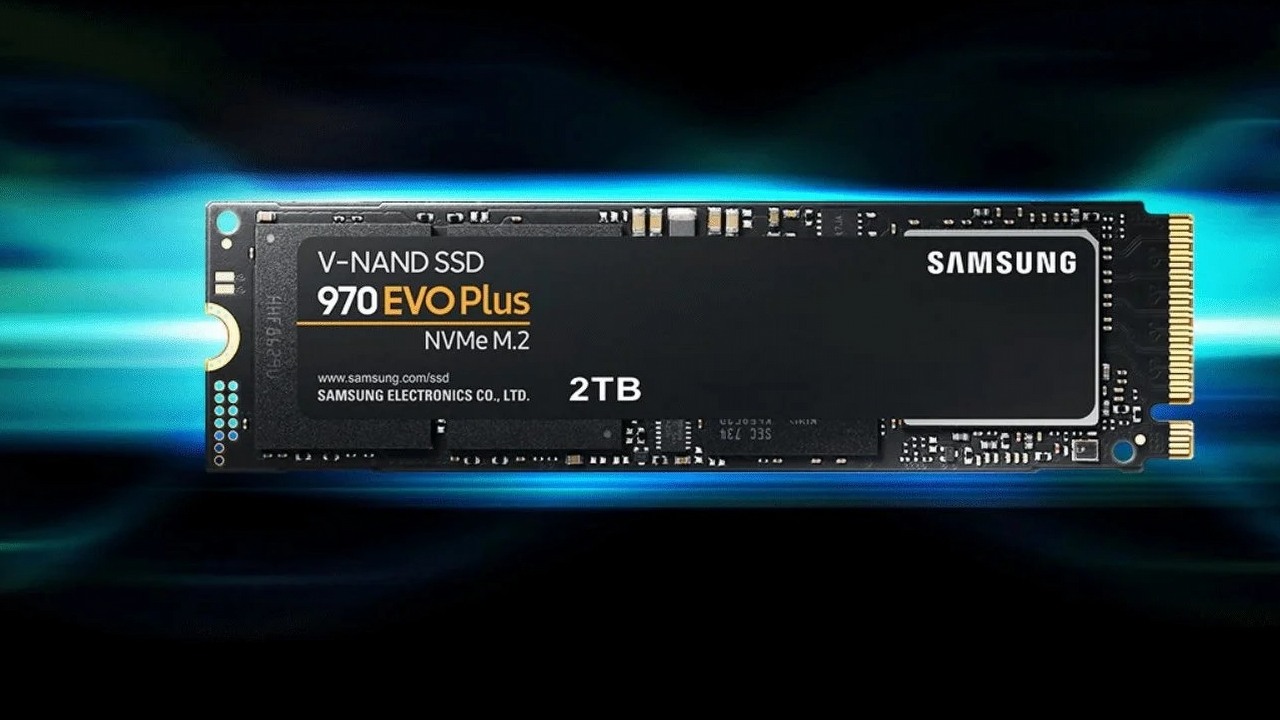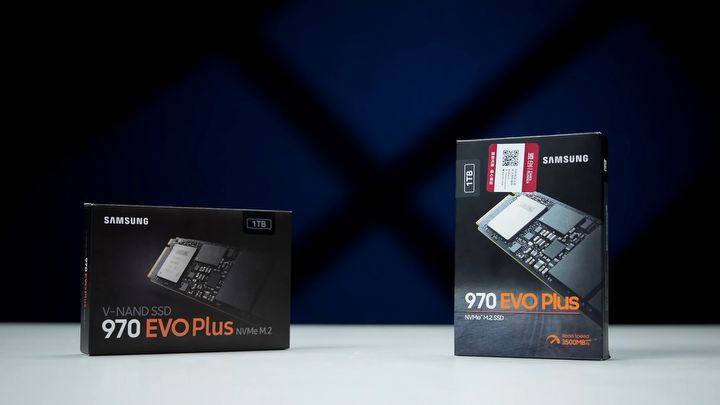Hidden Changes in SSDs: Samsung and WD Swap Parts for Weaker Ones
A disturbing trend has been noticed in the SSD market. Journalists report changes in the drives manufactured by, among others, Samsung and WD, in which parts have been discreetly changed (often for cheaper ones).
1

- Reports about new versions of some SSDs that apparently perform worse than existing copies have appeared on the web;
- The reports of Chinese journalists concern Samsung 970 Evo Plus and WD SN550 Blue drives, in which the controllers were changed without any warning;
- In addition, similar information has emerged regarding SSDs from other manufacturers.
It would seem like the current shortage of PC components would be enough of a worry for buyers, especially since it could soon translate into new price increases. However, apparently some manufacturers have decided to add their own brick to the problems in the market. Journalists have discovered that Samsung and WD have quietly introduced weaker parts in some SSDs. The matter was first reported by Chinese youtuber Jian Ge - the video, with English subtitles, is available below.
In Samsung's case, 970 EVO Plus has been updated with a different memory controller, labeled Elpis, with a slightly different part number (MZVL21T0HBLU; Phoenix controller that was previously used was MZVLB1T0HBLR). This fact was apparently not noted on the box, which by the way was also slightly changed. As shown by Jian Ge, the picture of the drive has been modified on the new packaging so that there is no information about the controller.
What exactly does the controller change? In CrystalDiskMark and other benchmarks, the new version performs as well or better than earlier copies of 970 EVO Plus. The differences came when copying larger files like Blu-ray movies. In the case of a 155GB file, this ultimately didn't translate into a change in execution time, but near the end of the process (around 80%) the write speed had dropped to just 800 MB/sec, while with the old model it only dropped to 1.5 GB/sec (albeit at 15% completion).
Apparently, according to Jian Ge, Samsung tripled the amount of SLC cache to partially compensate for the weaker controller. In addition, the drive with the older Phoenix coped noticeably better with temperature - in every more demanding test the SSD heated up to a maximum of eighty-something degrees Celsius, while the new version with Elpis approached 100 degrees Celsius..

The new box of Samsung's drive, in a way, hides the information about the change of the controller. Source: Jian Ge on YouTube.
WD decided on a similar step, which was also noticed by Chinese experts, this time from Expreview. Like the new units of 970 EVO Plus, the "refreshed" WD SN550 Blue apparently has weaker NAND flash memory, in this case, borrowed from the cheaper WD SN350 Green model. The result: when copying large files, i.e. larger than the capacity of the SLC cache memory (i.e. 12 GB in the SN550 Blue), write performance drops from about 2000 MB/s in both SN550 Blue variants to just 390 MB/s (instead of 610 MB/s as before).
We must admit that for the average buyer there are practically no significant differences between the old and "refreshed" versions of the drives. We also do not know whether the latter have appeared outside of the Chinese market. Nevertheless, such moves are a cause for concern. Quiet revisions of already rated products can be accepted when it translates into increased quality, and not the other way round. It would be better if the manufacturers deigned to inform about it at least on the box. To make matters worse, similar "downgrades" have also been detected in SSDs from other companies, including Crucial, and earlier also Patriot and Adata (via Tom's Hardware), and in some the difference in quality was much more noticeable than with SSDs from Samsung and WD. Apparently, the precedent has been set long ago.
Not surprisingly, the reaction of journalists (and Internet users) was - to put it mildly - not very enthusiastic. Especially since apparently such dubious improvements are not just the domain of SSD manufacturers.
- Top Roblox YouTuber IANROCKS’s channel has been suspended. Other creators are worried, “All my hard work could just get nuked one day, and I’d have to start from scratch”
- YouTuber loses channel to AI error, wins legal battle, but YouTube still ignores him
- Discussion about AI label on Steam continues. “The dev is being punished for their naive honesty”
1

Author: Jacob Blazewicz
Graduated with a master's degree in Polish Studies from the University of Warsaw with a thesis dedicated to this very subject. Started his adventure with gamepressure.com in 2015, writing in the Newsroom and later also in the film and technology sections (also contributed to the Encyclopedia). Interested in video games (and not only video games) for years. He began with platform games and, to this day, remains a big fan of them (including Metroidvania). Also shows interest in card games (including paper), fighting games, soulslikes, and basically everything about games as such. Marvels at pixelated characters from games dating back to the time of the Game Boy (if not older).
Latest News
- Elite Mod lets you play the Tau faction in Warhammer 40K: Dawn of War 2
- Huge Marvel Adventures mod now with new superheroes, including Sentry
- Butcher's Summit, an impressive free diselpunk FPS, has been released
- Free FPS on Half Life engine gets big update
- On February 3, gaming history could change forever. Red Dead Redemption 2 one step away from a major achievement

